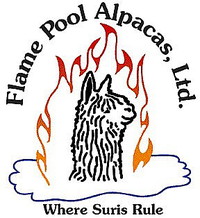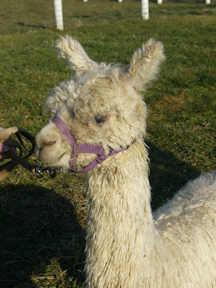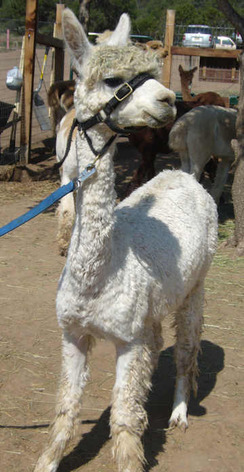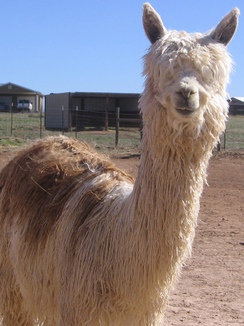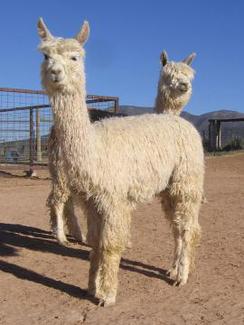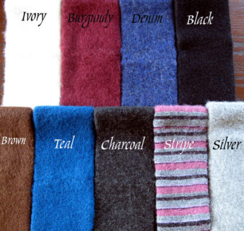How to Own Alpacas and Not Scoop Beans
Boarding alpacas can be a rich and rewarding experience. You feel the joy of owning these beautiful creatures. You receive some of the tax benefits they provide. Last, but not least you do not have the daily chores of feeding and scooping poop.
Some people buy and board their alpacas before buying a farm. They are able to learn about and participate in the care and feeding of their alpacas. They are eased into the care of the animals with the boarding farm's mentoring. Tasks, such as shearing, are shared with the boarding farm making the day more enjoyable.
Others, like myself, will never own a farm, but still want to enjoy owning alpacas and being part of the alpaca breeders community. You participate in monthly chores like herd health and you can visit your animals whenever you want. You choose how involved to become in your alpacas.
Choosing the right boarding farm is an important decision and is not as hard as you might think. Much of the information you need will come when you talk to different alpaca owners during your investigation of the alpaca business.
Here are the main issues you need to make an informed choice.
Pasture layout - How a farm's pasture is laid out can tell you a great deal about the farm. Learn what you can about the different ways breeders organize their pastures. Everyone is a bit different depending on their land, but there are some commonalities.
o Does the farm have the room to grow? The farm does not need 25-100 acres for this point. I've seen some very well laid out farms with 5 acres of land.
o Are there enough pastures so that the alpacas can be moved around to different fields to avoid overgrazing?
Talk with the farm's owner about their goals for their herd.
o Do they own a fiber herd?
o Are they creating a breeding herd?
o Who is their vet?
o How much experience with alpacas/camelids does the vet have?
Another important point of discussion is alpaca shows. If the farm participates in shows, discuss which ones. Would they be willing to transport your animals also? Do they charge any fees for this?
A 4-H club associated with the farm is an advantage. It is educating the next generation about alpacas. The 4-H children halter train your animals. They handle the alpacas at times other than herd health providing more human contact for your animals. This contact desensitizes the animals to the human touch and makes them easier to handle during routine maintenance or during shows.
Finally, discuss the costs of boarding with the farm owner.
o What is the cost per day or per month?
o Are there charges for routine maintenance of the animals, such as, monthly shots, or trimming nails?
By asking some or all of these questions you can be sure your animals are being raised in the best possible environment.
Some people buy and board their alpacas before buying a farm. They are able to learn about and participate in the care and feeding of their alpacas. They are eased into the care of the animals with the boarding farm's mentoring. Tasks, such as shearing, are shared with the boarding farm making the day more enjoyable.
Others, like myself, will never own a farm, but still want to enjoy owning alpacas and being part of the alpaca breeders community. You participate in monthly chores like herd health and you can visit your animals whenever you want. You choose how involved to become in your alpacas.
Choosing the right boarding farm is an important decision and is not as hard as you might think. Much of the information you need will come when you talk to different alpaca owners during your investigation of the alpaca business.
Here are the main issues you need to make an informed choice.
Pasture layout - How a farm's pasture is laid out can tell you a great deal about the farm. Learn what you can about the different ways breeders organize their pastures. Everyone is a bit different depending on their land, but there are some commonalities.
o Does the farm have the room to grow? The farm does not need 25-100 acres for this point. I've seen some very well laid out farms with 5 acres of land.
o Are there enough pastures so that the alpacas can be moved around to different fields to avoid overgrazing?
Talk with the farm's owner about their goals for their herd.
o Do they own a fiber herd?
o Are they creating a breeding herd?
o Who is their vet?
o How much experience with alpacas/camelids does the vet have?
Another important point of discussion is alpaca shows. If the farm participates in shows, discuss which ones. Would they be willing to transport your animals also? Do they charge any fees for this?
A 4-H club associated with the farm is an advantage. It is educating the next generation about alpacas. The 4-H children halter train your animals. They handle the alpacas at times other than herd health providing more human contact for your animals. This contact desensitizes the animals to the human touch and makes them easier to handle during routine maintenance or during shows.
Finally, discuss the costs of boarding with the farm owner.
o What is the cost per day or per month?
o Are there charges for routine maintenance of the animals, such as, monthly shots, or trimming nails?
By asking some or all of these questions you can be sure your animals are being raised in the best possible environment.
July 26, 2013
